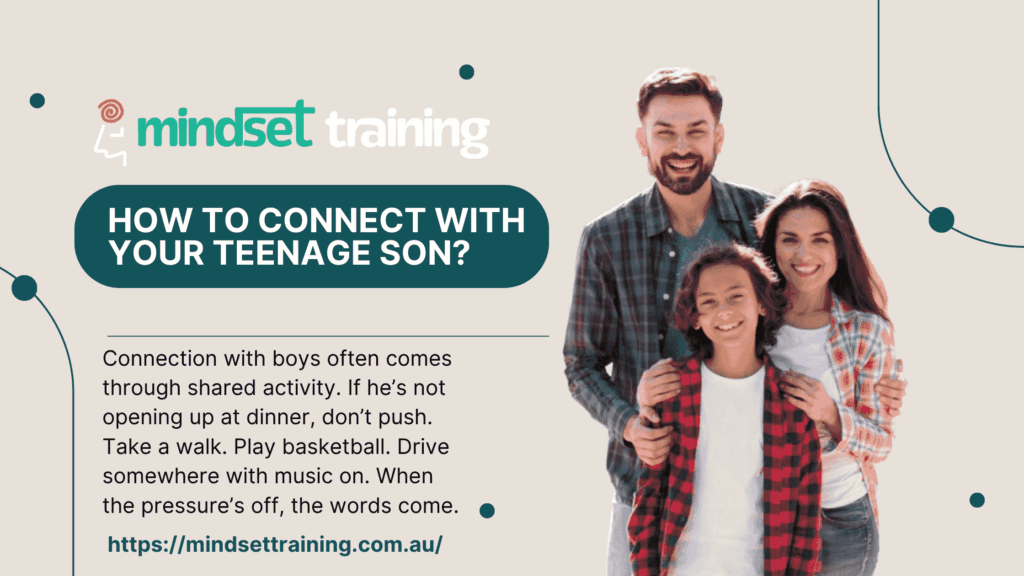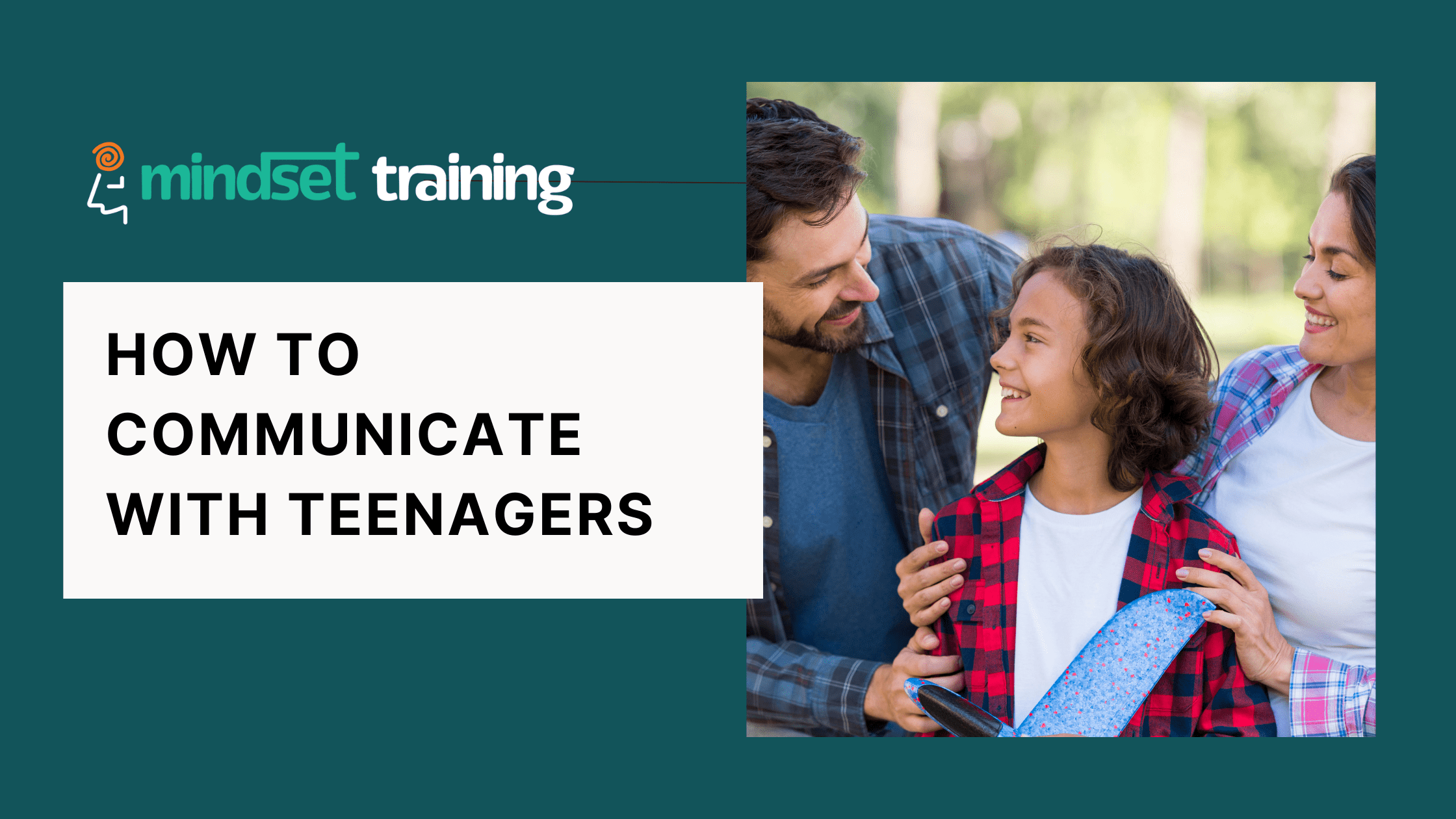Talking to teens can feel like trying to pet a cat that doesn’t want to be touched. They seem friendly from a distance. But the moment you get close, they push back. That makes connecting with them hard. The same goes for teenagers. One day, they’re happy to hang out with you. Next, they’re glued to their phone with headphones on. Ask them something, and all you get is a quiet “Fine.”
You’re just raising a teenager, so don’t panic if you’ve observed that change in distance. Even though it hasn’t been simple, keep in mind that you may communicate without engaging in constant control struggles or verbal sparring.
Now let’s dive into the best ways to converse with your teen so they pay attention and perhaps share some of their thoughts and feelings.
First Things First: They’re Not Mini-Adults
We have all had the experience at some point of being told by parents or elders not to do something because we “know better,” but the truth is that the brain is still developing, meaning that all of us are still under construction.
The prefrontal cortex is an area in the brain that is responsible for a person’s decision-making and risk identification, and it takes until the mid-20s for full development. This helps explain why a teen may sound grown-up at times and act like a toddler at other times, and the answer to this is that it is not defiance at all, but instead developmental progress.
Similarly, kids need to be given some degree of independence, and with that being said, whenever they decide to screw up or take steps back, it is not a personal breach but part of a childhood journey.
Instead of reacting or regulating on every single step, try providing direction and let them navigate and make mistakes. No matter how irritated they seem, deep down, they are closely observing the ways they act on love, guidance, and boundaries provided.
Want to Communicate Better? Start by Listening More Than You Talk
Sounds simple, right? But it’s hard, especially when all you want is to protect and guide them. The thing is, when teens feel heard, they’re more likely to talk. When they feel judged, they shut down.
Instead of jumping in with advice or warnings, try this:
“I’m not here to fix it right now. I just want to understand how you’re feeling.”
That line alone can defuse so much tension. It tells them you’re safe to talk to—even if they don’t say much back at first.

How to Connect With Your Teenage Son?
Let’s talk about boys for a second.
Your son might not say much. He might seem distant, distracted, or moody. But don’t confuse silence with disconnection. He still needs you—he just shows it differently.
Connection with boys often comes through shared activity. If he’s not opening up at dinner, don’t push. Take a walk. Play basketball. Drive somewhere with music on. When the pressure’s off, the words come.
Ask him about his world. Not “How was school?” but “What’s that song you keep playing?” or “Who’s your favorite player right now?” Show interest without expectation. It tells him, “I’m listening, even when you’re quiet.”
When he opens up, stay calm. Big reactions scare him off. He isn’t rejecting you; he’s testing how close feels safe. Quiet acceptance invites honesty. Let conversations breathe without forcing them.
Those small pauses, quiet smiles, shared glances, whispered jokes at midnight—remind him he belongs. They speak in moments, not speeches, weaving trust where words fall short. Side by side, understanding settles softly, growing into something neither could force without saying much.

How to Make Your Teenage Daughter Feel Special?
Teen girls face confusing emotions, shifting bodies, and constant pressure. Even if she pushes you away or acts tough, deep down she wonders one thing: “Do I matter just as I am, without needing to change?”
Am I enough?
Give her your full attention, not distracted, but quiet and steady. Show you notice her heart and mind, not just her looks. Tell her she’s brave and kind. Celebrate her dreams and effort, not only her smile or style.
Make space for time alone together, a slow walk, late tea, or an unplanned café visit. Those quiet pauses matter most.
When she opens up about something close to her heart, listen first. Hold back from rushing to fix or judge. That gentle patience shows her she’s safe with you.
How to Talk Without Fighting (Yes, It’s Possible)
Arguments with teens often blow up out of nowhere. One moment you’re talking about chores or phones, the next you’re both on edge.
But connection matters more than winning. Try softening your tone instead of shouting. When they raise their voice, lower yours. When they push, slow down.
Say how you feel instead of blaming: “I feel upset when I’m ignored.” This shifts the mood. A fight turns into a chance to talk. If things get worse, step back and say, “Let’s talk later.”
It isn’t surrender. It shows them how to handle big feelings without losing control. In the end, they learn more from your calm than your words. And that lesson sticks longer than any argument.
When They Don’t Want to Talk at All
Sometimes they won’t look up. You try. They look away. Your words bounce off the walls they’ve built.
Don’t force it. Silence doesn’t mean goodbye.
Step back, breathe, and stay close. Drop a meme in the chat. Slide a note under their door. Share a joke about nothing.
No big talk. No grand gestures. Just small reminders you’re around.
One day, they’ll turn and see you still there. That quiet proof: love didn’t leave when they closed the door.
Discipline Without Destroying the Relationship
Teens will test you. That’s part of growing up. But discipline doesn’t mean domination. It means guiding them with firmness and fairness.
Set clear boundaries. Follow through on consequences. But explain why the rules exist.
When errors occur, talk about the decision, not the person. Say, “This step caused a problem because…” instead of calling someone careless or irresponsible without looking at the reason behind it.
Correct the action, not their identity.
Because your goal isn’t obedience. It’s maturity.
Also read: 7 signs of a negative person
FAQs
Q: How do you make a teenager feel valued?
A: Make their feedback matter. Ask what they think. Celebrate every step forward. Say thanks and express pride regularly. Remind them they fit in here. Let them feel genuinely valued.
Q: How do you communicate with a depressed teenager?
A: Slow your pace and stay close. Sit quietly with them. Say, “It’s okay to feel off today. I’m here.” Offer gentle support. Looking for expert help usually brings real comfort and peace.
Q: How do you connect with your teenage daughter?
A: Stay steady. Be there even on her rough days. Honor her feelings. Share laughter often. Hear her out fully. Let her know she can always find comfort and trust with you.
Q: How do you talk to your teenager without arguing?
A: Speak softly. Frame thoughts with “I feel,” not blame. Wait until they’re relaxed. Avoid heated moments. Always let them speak. Sometimes, sitting quietly and truly hearing them out matters most.
Q: What’s an example of a successful communication strategy with a teen?
A: Empathetic listening means hearing them out. Let them share without interrupting, show you understand by repeating their words, and avoid rushing to solve things. This builds trust quickly.
Q: How do you talk to a teen who doesn’t want to talk?
A: Give space. Avoid pushing for deep talks. Share simple moments or activities. Wait patiently until they’re ready. Keep your door open with gentle kindness, showing you’re always there when needed.
Q: How do you discipline a teen who won’t listen?
A: Speak firmly and calmly. Define clear rules you follow. Announce expected behaviors. Warn before consequences arise. Skip harsh tones or guilt; stay composed. Remind yourself each day: your love remains unconditional.




